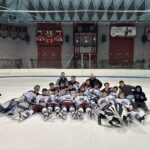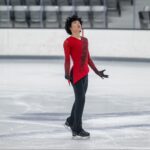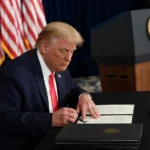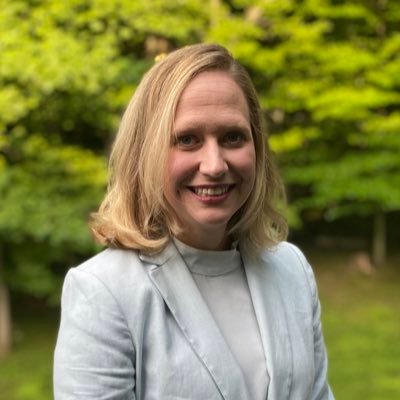Interviewed by, Lily Klinehandler
(Joined the district for the 2020-21 school year.)
What brought you to the Blind Brook School District?
Chirles: I was looking for a principal position and I live in Connecticut, so I was looking in Westchester and I happened to see Blind Brook and it reminded me of where I went to highschool. I went to a small high school that had about 600 students and was currently working at a school with 2,200 students, and I really wanted to be in a place that was smaller and where you have a good sense of community and you could really get to know a lot of the kids. And so that’s what brought me here.
What is Blind Brook’s greatest strength?
Chirles: Its greatest strength is the passion of our students to really get involved in the world around them. I see kids that are involved in sports, that are involved in clubs and activities, but they’re also out in the community doing things. Every time I talk to a student, they all have a story to tell about what they’re doing, which I think is one of our strengths. Everybody here has their own story, in their own path of what they’re doing, which I find really interesting.
When you were considering coming to Blind Brook, were you at all concerned about the turnover in administration?
Chirles: I wasn’t concerned about it because I know who I am as a person that is an educator. I felt that I could be that stability that maybe the school district needed. So I didn’t see it as a concern. I saw it as an opportunity for me to provide that person or that position some stability that maybe you didn’t have before.
What are your ideas for making Blind Brook better?
Chirles: I have a lot of ideas and so it’s a matter of how I can kind of make those into fruition. I have ideas on how we can make the school a more welcoming, kinder place. I have ideas about how we can support students against mean-spiritedness, or, bullying, harassment, etc… I’m going to need support from students, parents and staff. So as we move forward I will be reaching out to the community to ask for volunteers to help me with some of these things. So I think the best way we can make blind Brook better is to make Blind Brook more welcoming and to make it less fearful of sometimes that cliqueness and make it more of a friendship circle, like a horseshoe. So that way everybody’s kind of welcome to it. If you make it like a circle, that kind of boxes things off, but if you make things like a horseshoe there’s always room for more people to add-on to the horse shoe.
What do you want to remain the same at Blind Brook?
Chirles: Things that I’d like to remain the same are the quality of education that we provide students. It may look different, like I want teachers and students to try new, innovative teaching strategies and new ways of learning, but I think the output of how; how, by the time students graduate from us, they’re ready for college, the workforce or whatever, they are prepared for it. That’s what I want to stay the same always and I never want that part to change.
If you could pinpoint one weakness in Blind Brook School District, what would it be?
Chirles: It’s hard, I mean, I don’t see things as weaknesses. I see things as opportunities. So I’ve never really thought about a weakness that the students at this school have, but I see things as I said before, the opportunity for the school to be more welcoming. I guess you could say that as a weakness where I feel that some students might feel that they can’t be fully themselves in school or they can’t advocate for those around them. And so that is, I guess, a weakness, because you want students to be able to feel that they can be who they are. They can stand-up for others. If they need to, they can be an ally, they can be an upstander and an advocate, and if we don’t have an environment where students feel like they can do that in a safe way, then that is a weakness.
How would you address the previous challenge?
Chirles: So I have a couple of ideas that go along with working with our parent groups, like though the parent principal coffees, working with our shared decision-making committee, working with Ms. Tricarico and student assistance services, and trying to get some local organizations to bring in some outside programming into the school, but really make it something that’s embedded within the school. So one of the things that we’re doing that I helped bring into the district is the RULER program, and it’s a social emotional learning program that gives students strategies on how to best adjust their emotions, how to recognize your emotions, and how to regulate them. But it also has things like when you’re feeling heated, how to take a break or if there’s a conflict between two people, how you resolve it. So it’s not just about learning about your emotions, but also learning how we can interact together and how we can make ourselves as a community much better. So I think as we rule that out, we’re going to be looking for teacher volunteers to do that. We’re going to be doing some activities with students, and so the more we can kind of involve people in the process, I think the better it will be.
Anything else to add?
Chirles: I just would like to say I like that we’re back in person this year. I like that we get to have a more typical experience this year than we did last year. Last year was so unusual and so disruptive that I really appreciate that we’re able to be here together and that I look forward to being able to do some fun things as time goes on.







